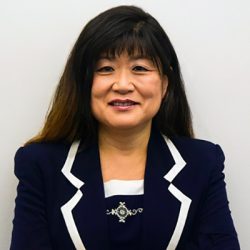FOR IMMEDIATE RELEASE
Chief Judge Margo K. Brodie announced today [July 24] that the Judges of the United States District Court for the Eastern District of New York have appointed a Merit Selection Panel composed of attorneys and residents of the district. (See Administrative Order No. 2024-14 here.) The Panel will consider candidates for three United States Magistrate Judge vacancies in Brooklyn, New York, for eight (8)-year terms, to be created by the retirement of U.S. Magistrate Judges Lois Bloom and Cheryl L. Pollak, effective May 17, 2025 and August 1, 2025, respectively, and by the appointment of U.S. Magistrate Judge Sanket J. Bulsara as United States District Judge, effective on the date of the signing of the Presidential Commission in December of 2024.
All applications for the magistrate judge vacancies must be received by October 23, 2024. The application form can be accessed online at the district’s website:
https://www.nyed.uscourts.gov/forms/application-us-magistrate-judge-vacancy-docx. Please see the below public notice for instructions on how to submit applications for the magistrate judge vacancies.
Within one hundred and fifty (150) days from its appointment on July 24, 2024, the Panel must report to the Court its recommended slate of candidates for consideration for the magistrate judge vacancies.
PUBLIC NOTICE
THREE FULL-TIME FEDERAL MAGISTRATE JUDGE VACANCIES
There are three (3) upcoming full-time United States Magistrate Judge vacancies at the Brooklyn Courthouse of the Eastern District of New York at 225 Cadman Plaza, Brooklyn, New York, effective on a date to be determined in December 2024, on May 17, 2025, and August 1, 2025, respectively. The duties of the position are demanding and wide-ranging, and will include: (1) conduct of preliminary proceedings in criminal cases; (2) trial and disposition of misdemeanor cases; (3) conduct of various pretrial matters and evidentiary proceedings on delegation from the judges of the district court; (4) trial and disposition of civil cases upon consent of the litigants; and (5) assignment of additional duties not inconsistent with the Constitution and laws of the United States.
The jurisdiction of a United States Magistrate Judge is specified in 28 U.S.C. § 636. To be qualified for appointment, an applicant must: (a) be a member in good standing of the bar of the highest court of a state, the District of Columbia, the Commonwealth of Puerto Rico, or the U.S. Virgin Islands for at least five years; (b) have been engaged in the active practice of law for a period of at least five years (with some substitutions authorized); (c) be competent to perform all the duties of the office, of good moral character, emotionally stable and mature, committed to equal justice under the law, in good health, patient and courteous, and capable of deliberation and decisiveness; (d) be less than 70 years old; and (e) not be related to a judge of the district court. An applicant should have federal court experience and be knowledgeable in federal civil and criminal practices and procedures.
A Merit Selection Panel (appointed by Administrative Order 2024-14) composed of attorneys and residents of the district will review all applications and recommend in confidence to the judges of the district court the five persons whom it considers best qualified for each vacancy. The Court will make the appointments following FBI and IRS investigations of the appointees. An affirmative effort will be made to give due consideration to all qualified candidates, including women and members of minority groups. The salary of the position is, as of this notice, $223,836.00 per annum. The term of office is eight years.
Please note that the application form can be accessed online at the district’s website:
https://www.nyed.uscourts.gov/forms/application-us-magistrate-judge-vacancy-docx.
Applications must be personally prepared by the applicant and must be received no later than October 23, 2024. Applications should be electronically submitted at
https://edny.app.box.com/f/89d572dd4ab644979ed53683c7005545. Instructions are available on the district’s website.
THE DISTRICT IS AN EQUAL OPPORTUNITY EMPLOYER





